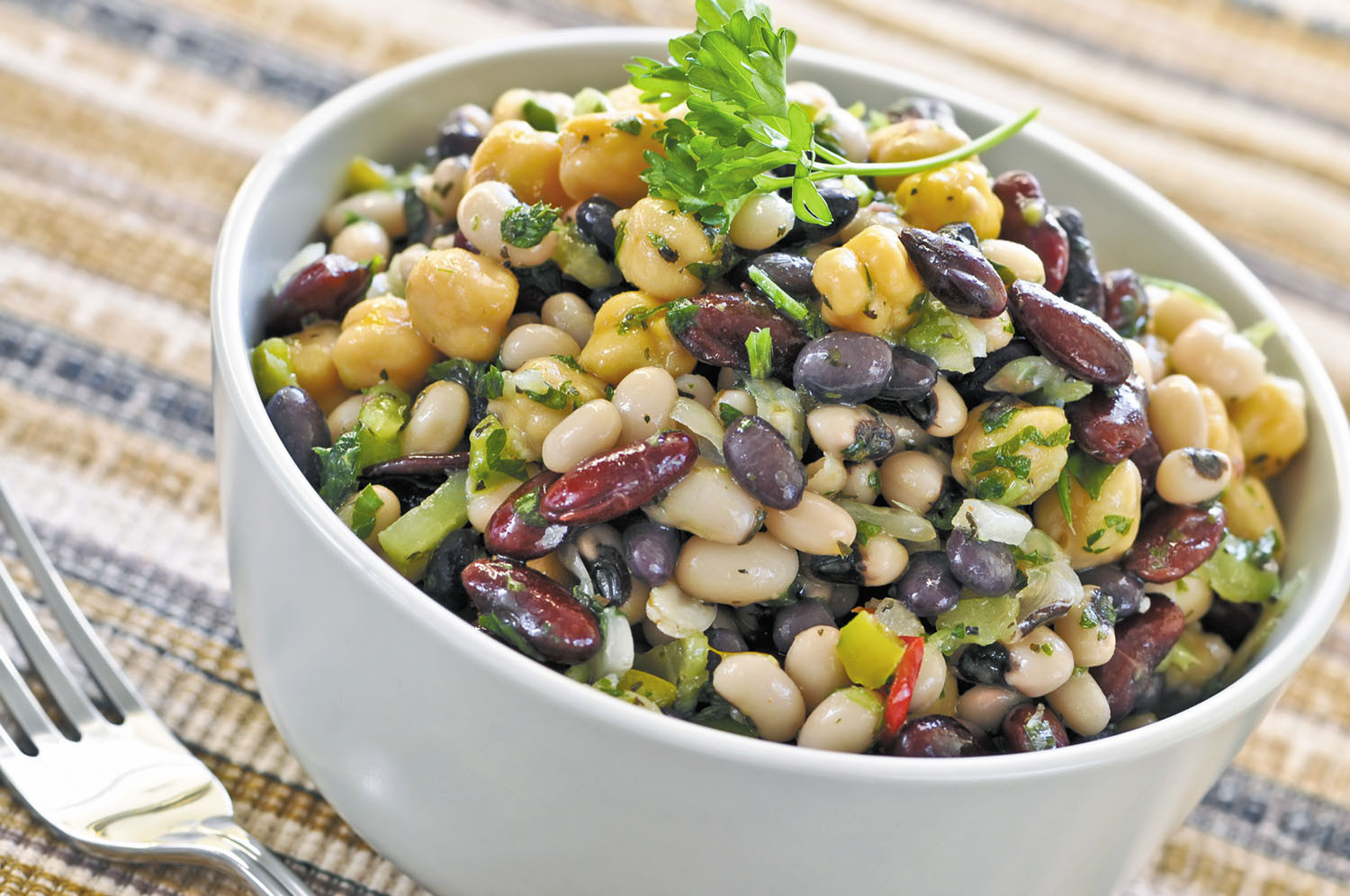
5 timeless habits for better health

What are the symptoms of prostate cancer?

Is your breakfast cereal healthy?

When pain signals an emergency: Symptoms you should never ignore

Does exercise give you energy?

Acupuncture for pain relief: How it works and what to expect

How to avoid jet lag: Tips for staying alert when you travel

Biofeedback therapy: How it works and how it can help relieve pain

Best vitamins and minerals for energy

Should you take probiotics with antibiotics?
Staying Healthy Archive
Articles
Answers to the top questions about cannabis extract
Sales of cannabidiol-infused products are expected to top $2 billion by 2021. But is CBD right for you?
Cannabidiol (CBD) is touted as a natural wonder that can help treat symptoms of everything from anxiety to arthritis pain. The plant extract comes from two varieties of cannabis — hemp and marijuana — and is available in creams, tinctures, oils, patches, gummy bears, capsules, and more. You can even add CBD to a latte if you walk into a coffee shop in some cities.
But is CBD safe for older adults? There haven't been a lot of large studies of CBD's safety, but more traditional medicines for pain and anxiety are not free of adverse effects, either. "I think CBD is likely safer than many other treatments people use for pain, insomnia, or anxiety," says Dr. Peter Grinspoon, a primary care physician with Harvard-affiliated Massachusetts General Hospital. Other physicians don't think we know enough about the safety profile of CBD to be sure.
Fiber linked to lower risk for chronic disease and early death
News briefs
Are you eating enough fiber each day? The recommended dietary fiber intake in the United States is 25 grams per day for women (about three half-cup servings of legumes) and 38 grams per day for men. But most people eat only half of that. Now a study commissioned by the World Health Organization, published online Jan. 10, 2019, by The Lancet, offers more evidence about why fiber is an important player in good health. Researchers combed through more than 240 studies and clinical trials and found that people who ate the most fiber-rich foods had the lowest risks for dying or developing chronic disease during the studies, compared with people who ate the least amount of fiber-rich foods. How much did the risks fall? For every 8-gram increase in dietary fiber eaten each day, the total number of deaths and cases of heart disease, diabetes, and colorectal cancer decreased by 5% to 27%. The authors say that eating 25 to 29 grams of fiber per day is adequate, but eating more than 30 grams per day might offer even more protection.
Image: © Elenathewise/Getty Images
A risky combination: Healthy weight but unhealthy activity level
News briefs
Many people think the only reason for regular exercise is that it helps you maintain a healthy weight. Not true. A sedentary lifestyle can cancel the potential heart benefits of weight control, according to a study published online Dec. 4, 2018, by the American Journal of Cardiology. Researchers looked at five years' worth of health survey responses and weight calculations from thousands of overweight and normal-weight people ages 40 to 79 who'd never had heart disease. Scientists noted the participants' amount of abdominal fat, waist size, and self-reported amounts of physical activity, then calculated everyone's cardiovascular disease risk. The results: 30% of sedentary people with a normal weight had about the same risk for a heart attack or stroke as people who were overweight. Sedentary adults whose weight was normal also had higher levels of belly fat, shortness of breath upon exertion, and an unhealthy waist circumference compared with normal-weight adults who exercised regularly. However, people with a normal weight who exercised at least 150 minutes per week were 58% less likely to have a heart attack than those in the study who were overweight.
Image: Halfpoint/iStock
The buzz about caffeine and health
What the latest science says about caffeine's influence on your heart, memory, sex life, and exercise performance.
Americans are jolted with caffeine. On average, about 80% of adults take some form of caffeine every day, according to the FDA, usually from coffee, tea, soda, or energy drinks.
But does all that caffeine have any effect on your health — either good or bad? "While caffeine can give you a temporary mental and physical boost, its impact depends on how much you consume and the source," says Dr. Stephen Juraschek, an internal medicine specialist at Harvard-affiliated Beth Israel Deaconess Medical Center.
No time to exercise? Then take five
You can do an all-around workout in just five minutes if you focus on intensity and target the main muscle groups.
Growing evidence continues to show that high-intensity interval training (HIIT) offers similar — or in some cases even superior — results compared with longer, lower-intensity workouts. With HIIT, you exercise for a short burst at near-maximum effort followed by a brief rest period, and then you continue to repeat the cycle over the next 10 to 15 minutes.
Small workouts, big gains
The main advantage to HIIT is that it takes less time than the traditional workout of 20 to 30 minutes or longer.
Put your best foot forward
Here's what you can do about the three most common foot issues related to aging.
When our feet hurt, we hurt all over. That saying is often attributed to the Greek philosopher Socrates, and it's as relevant today as it was more than 2,500 years ago.
"Our feet are our vehicle to an active lifestyle," says Dr. Christopher DiGiovanni, chief of the Foot and Ankle Service at Harvard-affiliated Massachusetts General Hospital and Newton Wellesley Hospital. "If your feet are not sound and healthy, it's tough to keep the rest of you healthy, too."
Zinc oxide shows no link to skin damage
In the journals
Zinc oxide (ZO) is one of the most effective ingredients in sunscreen, but previous studies have suggested it could potentially damage skin cells. Now, a small study in the February 2019 Journal of Investigative Dermatology has found that ZO nanoparticles don't penetrate the skin or damage skin on a cellular level even with repeated applications.
ZO is one of 17 active sunscreen ingredients approved by the FDA. ZO offers broad-spectrum protection and shields against both UVB rays, which cause sunburn, and UVA rays, which penetrate more deeply and are more likely to damage cell DNA and increase the risk of skin cancer.
Chopped, uncooked spinach offers more antioxidants
In the journals
Spinach is one of the best sources for the antioxidant lutein, which may promote eye health and reduce the risk of macular degeneration. A new study in the March 30, 2019, issue of Food Chemistry suggests that eating uncooked chopped spinach can ensure you get the highest amounts compared with traditional cooking methods.
The researchers measured the lutein content of baby spinach after it was fried, boiled, and steamed. They found that lutein levels dropped by 40% after only four minutes of boiling, and by 90% after 90 minutes, while levels decreased by more than 60% after just two minutes of frying. Spinach lost about 50% of its lutein after four minutes of steaming.
Needling your way to healthier skin
Microneedling was once viewed with skepticism, but it can be an effective procedure to improve the skin.
If the idea of poking yourself in the face with tiny needles in hopes of improving your skin sounds a little bizarre to you, you're not alone. For years, the medical establishment looked at the practice, known as microneedling, with a leery side-eye.
"I didn't take it seriously until relatively recently," says Dr. Kenneth Arndt, medical editor of the Harvard Special Health Report Skin Care and Repair and a founding editorial board member of the Harvard Health Letter.
Should you be taking an omega-3 supplement?
The answer to that question is becoming clearer, thanks to new research.
Some 10% of American adults regularly take an omega-3 supplement, despite uncertainty about whether these products truly live up to their health claims. But two new studies published in November 2018 shed some light on who might benefit from omega-3 supplements — and who probably won't.
VITAL
The first study was the Vitamin D and Omega-3 Trial (VITAL), a large multiyear study with 25,871 healthy adults with no history of cardiovascular (heart or blood vessel–related) disease and at "usual risk" for it. The group was racially diverse and chosen to be representative of the general population, says the study's lead author Dr. JoAnn E. Manson, professor of medicine and the Michael and Lee Bell Professor of Women's Health at Harvard Medical School.

5 timeless habits for better health

What are the symptoms of prostate cancer?

Is your breakfast cereal healthy?

When pain signals an emergency: Symptoms you should never ignore

Does exercise give you energy?

Acupuncture for pain relief: How it works and what to expect

How to avoid jet lag: Tips for staying alert when you travel

Biofeedback therapy: How it works and how it can help relieve pain

Best vitamins and minerals for energy

Should you take probiotics with antibiotics?
Free Healthbeat Signup
Get the latest in health news delivered to your inbox!
Sign Up











